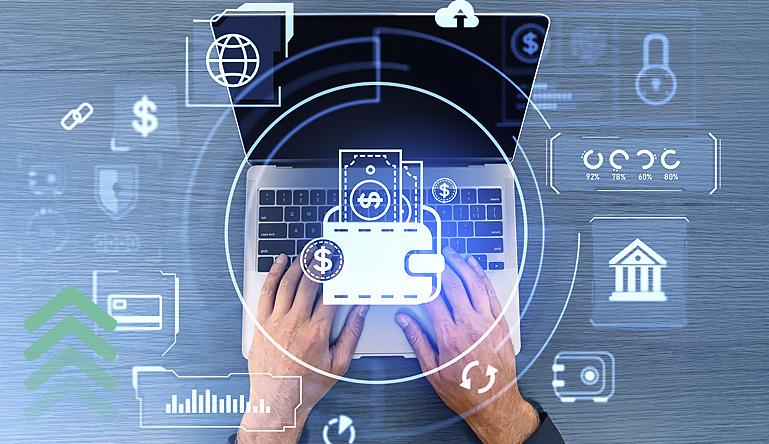-
 Vice President of Sales, Catalis Payments
Vice President of Sales, Catalis PaymentsA passionate sales leader, he builds dynamic teams, driving customer success via strategic growth, innovation, and global relationships.
View all posts
What Government Agencies Can Learn from Them
Digital wallets have quickly moved from convenience to expectation. Across the United States, people are trading physical cards and cash for smartphones, smartwatches, and other mobile devices to manage their payments. Whether it’s tapping a phone to buy groceries or scanning a QR code to pay for a parking ticket, fast and secure digital payments are now a daily norm.
For government agencies, understanding which digital wallets are most widely used is key to designing payment experiences that align with how people already pay and how they prefer to interact with public services.
Let’s explore the most popular digital wallets in the U.S. and what their rise means for forward-thinking public sector organizations.
What Is a Digital Wallet?
A digital wallet is a mobile application or platform that stores payment information electronically and enables users to conduct financial transactions without needing a physical wallet. Most digital wallets include features like contactless tap-to-pay capabilities, secure card storage, peer-to-peer (P2P) transfers, biometric or PIN authentication, and real-time transaction updates. As more people adopt these tools for everyday purchases, they increasingly expect the same level of ease and security when interacting with public sector systems, whether paying for utilities or renewing licenses.
The Most Popular Digital Wallets in the U.S.
Apple Pay
Apple Pay is the most frequently used digital wallet in the United States, especially among iPhone users, who make up nearly half of the U.S. smartphone market.
Key features:
- Seamless integration with iOS and Apple Watch
- Face ID and Touch ID for secure authentication
- Tap-to-pay in stores and online checkout
- Stored cards, passes, and loyalty programs
Why it matters for governments: Apple Pay’s wide acceptance and fast transaction times make it a smart addition to any agency’s payment offerings, especially for mobile-first users.
Google Pay
Google Pay is the Android alternative to Apple Pay, offering similar features across a wide range of smartphones, watches, and other Google-connected devices.
Key features:
- Tap-to-pay functionality at contactless terminals
- Compatibility with Gmail, Google accounts, and Android services
- Secure storage of credit, debit, and loyalty cards
- Integrated transit and event passes
Why it matters for governments: Google Pay ensures accessibility for Android users and promotes fast, low-friction transactions both online and in person.
PayPal
PayPal has long been a trusted digital wallet for online payments and continues to be a preferred option for citizens making secure transactions through government websites or portals.
Key features:
- Strong encryption and fraud protection
- Quick checkout via email and password
- Ability to link bank accounts, credit cards, and debit cards
- Access to PayPal Credit and Buy Now, Pay Later (BNPL) features
Why it matters for governments: PayPal’s broad appeal across age groups makes it a versatile option for agencies seeking to serve residents with varied digital habits.
Venmo
Owned by PayPal, Venmo is extremely popular among Millennials and Gen Z. What sets it apart is its intuitive, social design—users can send and receive money using usernames, phone numbers, or QR codes, and include notes or emojis to make transactions more personal. Venmo accounts are often linked to bank accounts or cards, and it’s now accepted by many physical and online retailers.
Why it matters for governments: As younger generations increasingly turn to Venmo for daily transactions, integrating this option into payment systems can help boost engagement and on-time payments for things like permit fees, parking fines, and more.
Samsung Wallet
While more niche, Samsung Wallet (formerly Samsung Pay) remains relevant in the Android ecosystem, particularly among Samsung device users. It supports both NFC and MST (Magnetic Secure Transmission), meaning it’s compatible with a wider variety of payment terminals. Built-in security is bolstered by Samsung Knox, and users can authenticate payments with biometrics or PINs. Beyond payment cards, Samsung Wallet also supports event tickets, loyalty cards, and ID passes.
Why it matters for governments: Including Samsung Wallet ensures that mobile payment support is comprehensive, covering a broader base of device users.
Why Digital Wallets Belong in Government Payment Systems
Digital wallets offer significant benefits that align closely with public sector goals, especially around accessibility, efficiency, and trust.
Benefits include:
- Faster transactions: Tap-and-go or one-click payments speed up lines and reduce staff time.
- Greater convenience: No need to manually enter card information or carry a physical wallet.
- Enhanced security: Tokenization, encryption, and biometric logins protect user data.
- Wider accessibility: Residents with limited traditional banking access can still pay using wallets linked to prepaid cards or P2P platforms.
- Improved compliance: Easier payment processes can reduce missed deadlines and increase collections.
From property tax to court fines, utility bills to permit fees, digital wallets give citizens more flexibility and control and provide agencies with more efficient payment processing tools.
Anticipating the Next Wave: Wallets Beyond Payments
Digital wallets are evolving beyond transactions. In many states, they are being used to store mobile driver’s licenses (mDLs), transit passes, event and facility access tickets, and even health credentials like vaccination records. These expanded capabilities suggest a future where digital wallets will play a broader role in identity verification and civic access, creating opportunities for governments to innovate across services, not just payments.
How to Get Started
Integrating digital wallet payments is more achievable than many agencies expect. A few key steps include:
- Partnering with a payment provider that supports Apple Pay, Google Pay, PayPal, Venmo, and Samsung Wallet
- Ensuring existing portals and kiosks are mobile-friendly
- Educating staff and citizens on the added convenience and security
- Monitoring usage patterns and feedback to optimize adoption
Agencies don’t need to replace their entire payment infrastructure—they just need to make it more adaptable to how people live and pay today.
Catalis Can Help You Get There
Catalis Payments is designed with modern government in mind. Our secure, PCI-compliant platform supports the digital wallets your residents already use—Apple Pay, Google Pay, PayPal, Venmo, and more—so you can meet citizens where they are and simplify every step of the payment experience.
We work closely with local, county, and state agencies to make digital wallet adoption seamless, scalable, and stress-free. Whether you’re adding tap-to-pay at your front counter or enabling mobile-friendly transactions on your website, Catalis makes it possible.
With the right tools in place, digital payments don’t just meet expectations, they raise the standard for how government services are delivered.
Visit Catalis for a comprehensive list of our government/public sector solutions.


